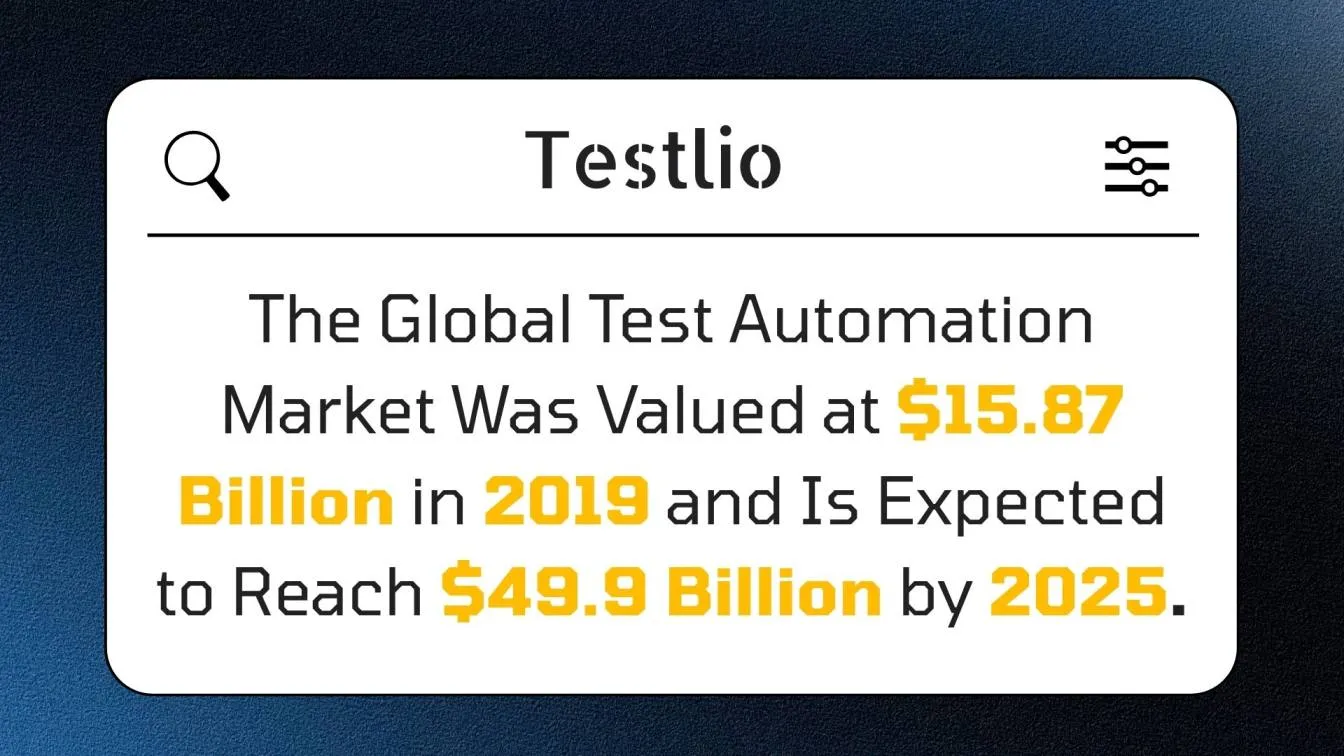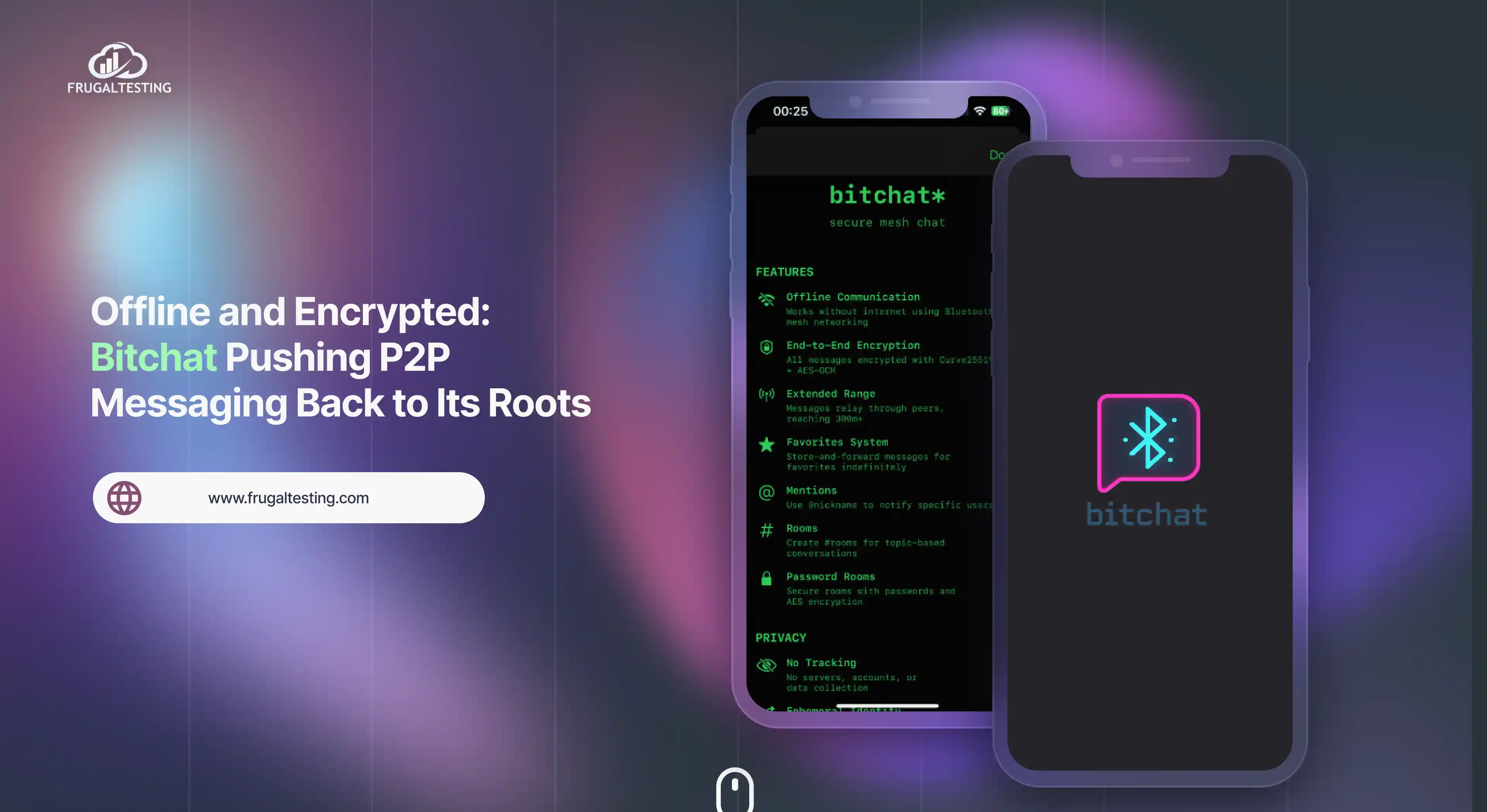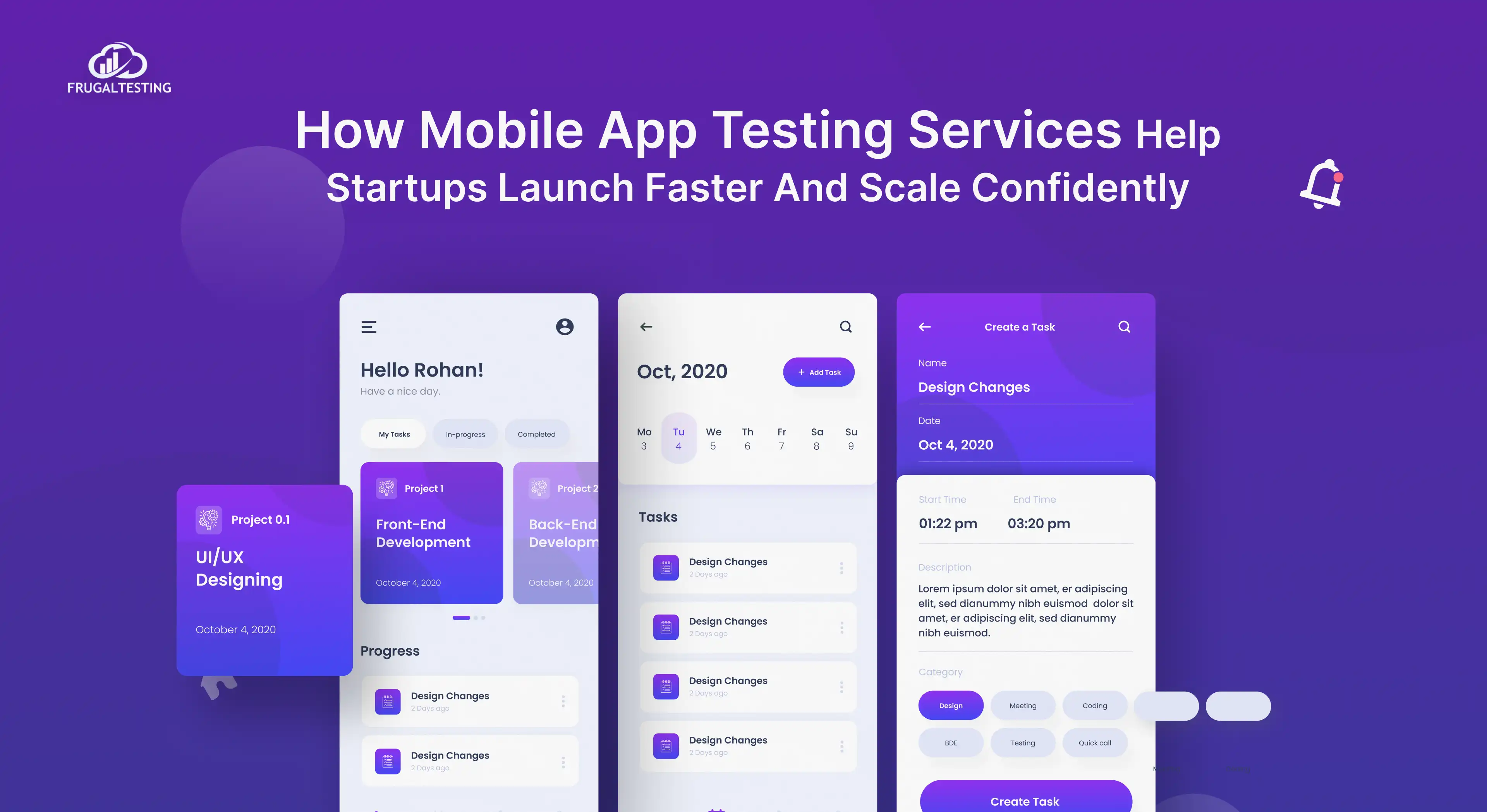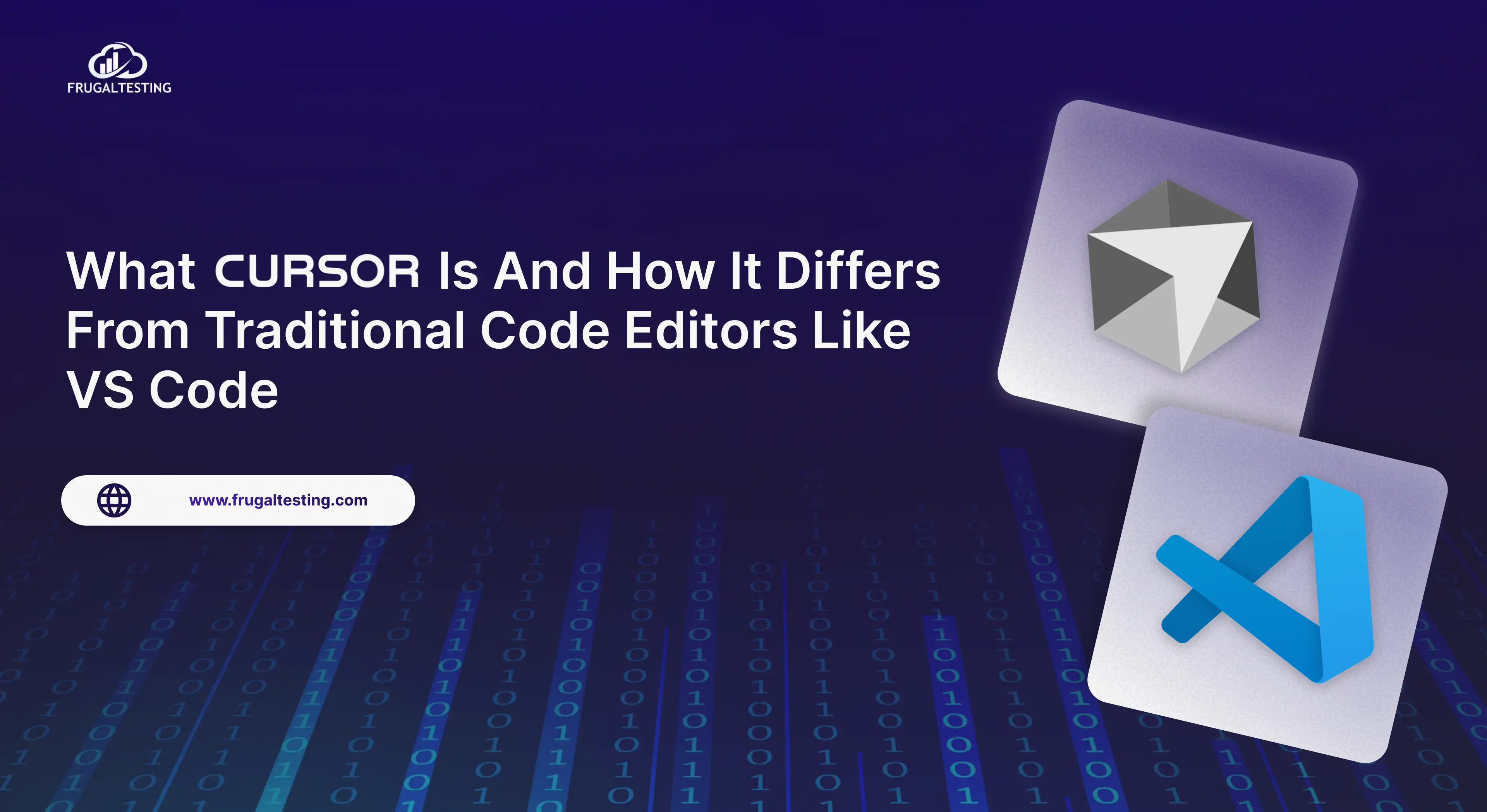Test automation frameworks are crucial for modern software development, offering structured approaches to improve efficiency and accuracy. Various test automation frameworks like Selenium, Appium, Robot Framework, and TestNG enable automated testing across web, mobile, and API platforms. Selenium automation testing remains the industry standard for web applications, while Appium automation is widely used for mobile testing. Robot Framework testing supports a keyword-driven approach, and the TestNG framework enhances test execution in Java applications. Adopting continuous testing frameworks and test automation tools improves software quality. As automation evolves, cloud-based and AI-powered solutions will enhance continuous testing services, making automation more scalable and efficient.

What’s next? Keep scrolling to find out:
🚀 Continuous Testing Overview - How continuous testing frameworks enhance software quality.
🚀 Choosing the Right Framework - Key factors for selecting a test automation framework.
🚀 Feature Comparison - Explore Module-Based, Data-Driven, Hybrid, and other frameworks.
🚀 Implementation Tips - Setting up Selenium automation testing and Appium framework.
🚀 Overcoming Challenges - Fix flaky tests and integration issues in automated testing with Selenium.
🚀 Future Trends - AI-driven testing and continuous testing platform innovations.
Continuous Testing and Automation Overview
Continuous testing is a crucial part of modern test automation, ensuring software quality throughout the software development lifecycle. By integrating test automation frameworks with development workflows, teams can execute tests continuously, detecting issues early. Tools like Selenium testing, Appium automation, and Robot Framework testing streamline continuous testing services, enabling faster feedback and risk mitigation. A well-defined continuous testing framework helps achieve scalability, reliability, and efficiency in software testing. Leveraging AI-driven and cloud-based test automation tools, businesses can enhance continuous testing platforms for seamless deployment. Adopting best practices in software test automation ensures a robust and efficient testing process in the software development process.

Why Test Automation is Essential for Modern Software Development
Manual testing can be time-consuming and prone to errors, making it difficult to keep up with rapid development cycles. Test automation enhances speed, accuracy, and efficiency, ensuring high-quality software delivery. Here’s why it’s essential:
- Faster Testing & Feedback: Automation speeds test execution, ensuring quicker releases.
- Higher Accuracy & Reliability: Eliminates human errors, providing consistent results.
- Better Test Coverage: EnableCloud Testing Market Growths cross-browser, mobile, and API testing using automation frameworks and tools.
- Cost & Time Efficiency: Reduces manual effort, making testing scalable and reusable.
- Seamless Integration: Works with continuous testing platforms for CI/CD pipelines.
- Early Bug Detection: Ensures software stability and prevents failures in production.
- Parallel Execution: Frameworks like TestNG speed up testing by running multiple cases simultaneously.

Overview of Popular Test Automation Frameworks
A test automation framework provides a structured approach to executing automated tests efficiently. These frameworks streamline software test automation, ensuring better test coverage, maintainability, and scalability.
With the rise of continuous testing, choosing the right framework is essential for delivering reliable software at speed. A well-implemented test automation framework reduces manual effort, enhances reusability, and integrates seamlessly with various test automation tools. Below are some widely used frameworks in the industry:

Module-Based Testing Framework
This test automation framework divides applications into independent, reusable modules, each having separate test scripts. It improves maintainability and works well in selenium test automation and other test automation tools.
- Each module is tested separately, reducing dependencies and improving reusability.
- Ideal for large-scale applications where changes occur in isolated parts of the system.
Library Architecture Testing Framework
It organizes reusable functions into libraries, allowing modular automation testing selenium. This structure enhances flexibility, making it a powerful choice in software test automation tools.
- Encourages code reusability by creating function libraries that can be used across multiple test scripts.
- Simplifies test maintenance by centralizing frequently used operations into a shared library.
Data-Driven Testing Framework
This approach stores test data in formats like Excel, CSV, databases, or JSON, allowing test scripts to run multiple scenarios with different inputs—boosting efficiency in continuous testing frameworks.
- Enhances test coverage by validating multiple data sets without modifying test scripts.
- Reduces redundancy by separating test logic from test data, making updates easier.
Keyword-Driven Testing Framework
Uses predefined keywords to define actions, making selenium automation testing and other test automation services more accessible for non-programmers.
- Allows testers to create test scripts using simple keywords without requiring deep coding knowledge.
- Increases test automation efficiency by promoting a structured, reusable test case approach.
Hybrid Testing Framework
A hybrid testing framework combines multiple testing approaches—such as data-driven, keyword-driven, and modular frameworks - to enhance flexibility and adaptability in test automation.
- Combines multiple approaches with an automation tool for diverse testing needs.
- Handles complex scenarios by integrating various testing strategies.
Behavior-Driven Development (BDD) Framework
Uses natural language syntax (e.g., Cucumber, Robot Framework) to bridge communication gaps between developers and testers, enhancing continuous testing services and improving collaboration in Selenium automated testing.
- Enhances test readability and collaboration by defining test cases in human-friendly language.
- Encourages better communication between technical and non-technical teams through structured BDD test scenarios.
Key Factors to Consider When Choosing an Automation Framework

Choosing the right test automation framework is crucial for efficient and scalable testing. Compatibility with the application type is essential. Selenium automation testing is ideal for web applications, while Appium automation supports mobile testing. Robot Framework is a great choice for keyword-driven testing, while the TestNG framework offers advanced test execution capabilities. Cross-browser and cross-platform support, as seen in the Selenium testing tool and Playwright, ensures seamless execution across different environments. Scalability and maintainability are key, allowing teams to manage large test suites efficiently. Parallel execution, supported by TestNG, improves testing speed. Strong community support, extensive documentation, and built-in reporting enhance usability. By focusing on these factors, teams can achieve continuous testing and streamline software development.
Important Considerations:
- Compatibility with Application Type
- Ease of Use and Learning Curve
- Cross-Browser and Cross-Platform Support
- Parallel Execution for Faster Testing
- Strong Community Support and Documentation
- Built-in Reporting and Debugging Capabilities
- Optimizing Workflows and Ensuring Reliability
Selenium – The Industry Standard for Web Testing
Selenium is a powerful tool and a premier open-source framework for automating web applications. As a leading test automation framework, it is widely used for testing web applications across different browsers and platforms. By enabling automation scripts, Selenium minimizes manual intervention, improving automation efforts and ensuring reliability in modern web applications.
Key Features of Selenium:
- Multi-Browser Compatibility: Supports browsers like Chrome, Firefox, Safari, and Edge, enabling comprehensive test coverage for modern web applications through effective test automation frameworks.
- Language Support: Facilitates data-driven test frameworks by allowing test script development in multiple programming languages, including Java, Python, and C#, addressing diverse automation requirements.
- Parallel Test Execution: Helps optimize testing efforts by enabling simultaneous execution of tests, reducing execution time while handling complex test scenarios efficiently.
- Cross-Platform Support: Ensures flexibility in approach to testing by supporting Windows, Linux, and macOS, allowing reusable test scripts for different environments.
- Integration Capabilities: Seamlessly works with tools like TestNG, JUnit, and Selenium IDE, enhancing detailed reporting and providing built-in support for managing test cases and results.

Appium – The Best Framework for Mobile Automation
Appium is a popular choice for mobile application testing, providing an open-source test automation framework for Android, iOS, and Windows. It supports native, hybrid, and web applications while integrating with various automation tools and services to ensure comprehensive test coverage.
Key Features of Appium:
- Cross-Platform Compatibility: Enables test automation on multiple platforms using a single codebase with Appium server, streamlining testing repetitive tasks.
- Multi-Language Support: Supports Java, Python, C#, and Ruby for flexible Appium automation, making it adaptable for various coding standards.
- No App Modification Required: Preserves application code integrity during continuous testing without modifications, ensuring code quality is maintained.
- Integration with Testing Frameworks: Works with TestNG, JUnit, and other continuous testing frameworks, allowing testers to incorporate custom code for complex scenarios.
- Real Device & Emulator Testing: Supports testing on real devices, emulators, and simulators, with easy setup via Appium download. It can also fetch test data from external sources, making it a robust data-driven framework.

Robot Framework – A Versatile Keyword-Driven Approach
Robot Framework is an open-source test automation modular framework that employs a keyword-driven testing approach, enabling testers to create readable and maintainable test cases. The framework supports Robot Framework Selenium for efficient web automation and integrates seamlessly with various robot automation frameworks for comprehensive testing.
Key Features of Robot Framework:
- Extensible Libraries: Supports a wide range of Robot Framework libraries, such as SeleniumLibrary, enhancing test automation capabilities across multiple domains.
- Integration with Continuous Testing Platforms: Works effectively with continuous testing platforms, allowing smooth execution of automated test cases within different environments.
- Comprehensive Coverage: Ensures thorough validation of applications by integrating with multiple test libraries and frameworks.
- Comprehensive Reporting: Provides detailed logs and reports, simplifying debugging and improving test execution analysis in Robot Framework testing.
- Cross-Platform Support: Compatible with Windows, Linux, and macOS, making Robot Framework installation flexible for different operating systems.

Cypress – Fast and Reliable End-to-End Testing
Cypress is a modern test automation framework designed for fast, reliable, and efficient end-to-end testing of web applications. It simplifies test automation with an intuitive interface, real-time execution, and powerful debugging tools.
Key Features of Cypress:
- Fast Execution: Runs directly in the browser, making test automation faster and more reliable.
- Automatic Waiting: Eliminates the need for manual waits and retries, ensuring stable software test automation.
- Real-Time Debugging: Provides instant feedback with snapshots and detailed logs, enhancing test automation services.
- Cross-Browser Testing: Supports testing on Chrome, Edge, and Firefox, making it a versatile test automation tool.
- Seamless Integration: Works with continuous testing platforms and CI/CD pipelines for streamlined continuous testing services.

Playwright - Powerful Cross-Browser Automation
Playwright is a cutting-edge test automation framework designed for reliable cross-browser automation. It supports modern browsers like Chrome, Firefox, and Safari, making it a preferred test automation tool for developers and testers.
Key Features of Playwright:
- Multi-Browser Support: Enables test automation across Chromium, WebKit, and Firefox, ensuring broad coverage.
- Auto-Waiting Mechanism: Reduces flakiness by handling waits automatically, enhancing software test automation.
- Headless and Headed Modes: Supports both modes for efficient test automation services in different environments.
- Parallel Test Execution: Runs multiple tests simultaneously, improving continuous testing efficiency.
- Seamless CI/CD Integration: Works with continuous testing frameworks for streamlined testing workflows.

TestNG – Advanced Testing for Java Applications
TestNG is a powerful test execution framework for Java, enhancing software test automation with advanced features and seamless integration with other automation frameworks. It boosts test automation services through better flexibility, scalability, and reporting.
Key Features of TestNG:
- Annotations and Groups: Simplifies test automation by allowing better organization and execution of test cases.
- Parallel Execution: Enables running multiple tests concurrently, improving test automation tools efficiency.
- Data-Driven Testing: Supports parameterization, making it an ideal test automation tool for complex scenarios.
- Assertions and Reporting: Provides detailed test reports, aiding in effective continuous testing.
- Integration with Selenium: Works seamlessly with Selenium test automation, enhancing automated testing workflows.

Best Practices for Implementing Automation Frameworks in 2025
Implementing a robust test automation framework ensures faster, more reliable testing while improving software quality. Following best practices helps maximize efficiency and maintainability.

- Select the Right Tools: Choose Selenium, Appium, Cypress, or Robot Framework based on project needs.
- Ensure Cross-Platform Compatibility: Use test automation frameworks that support diverse browsers and devices.
- Optimize Execution: Implement parallel testing with TestNG, Appium server, or continuous testing platforms for faster results.
- Integrate with CI/CD: Enhance software test automation by automating tests within deployment pipelines.
Overcoming Challenges in Test Automation
Test automation can present various hurdles that need to be tackled for smoother integration and better performance. Addressing these challenges is key to building an effective and reliable test automation system.

- Integration with Existing Systems: Ensure seamless compatibility with legacy systems and third-party tools to avoid disruption in test automation.
- Handling Test Data: Efficiently manage test data for a consistent and reproducible testing process, ensuring tests reflect real-world scenarios.
- Dealing with Test Environment Variability: Set up stable, isolated environments to avoid discrepancies between different stages of development and testing.
- Maintaining Test Stability: Minimize flaky tests by creating resilient test scripts and implementing thorough debugging practices.
Future Trends in Test Automation and Continuous Testing
As software development evolves, test automation and continuous testing are becoming more advanced, integrating AI and cloud technologies for greater efficiency. Here are key trends shaping the future:

- AI-Driven Test Automation: AI-powered test automation tools enhance test case generation, maintenance, and defect detection.
- Cloud-Based Testing: Cloud platforms provide scalable continuous testing services for cross-device and cross-browser compatibility.
- Self-Healing Test Automation: Modern test automation frameworks can automatically adapt to UI changes, reducing test maintenance efforts.
- Shift-Left Testing: Early testing adoption in the development cycle ensures faster bug detection with continuous testing platforms.
- Low-Code/No-Code Automation: Simplified software test automation allows non-technical users to create tests efficiently.
Conclusion – Choosing the Right Framework for Your Needs
The right test automation framework can significantly enhance software reliability and streamline development workflows. As businesses move toward continuous testing, adopting scalable, flexible, and AI-driven solutions becomes crucial. Selenium, Appium, Robot Framework, and TestNG each cater to different testing needs, ensuring efficient test execution across platforms.
Beyond just choosing a framework, organizations must focus on maintainability, integration, and scalability to keep pace with evolving technologies. The rise of cloud-based automation and self-healing test scripts will further optimize testing processes, reducing manual effort and improving software quality.
In 2025 and beyond, test automation frameworks are crucial for faster releases, lower costs, and higher software quality. Adopting scalable frameworks, AI-driven testing, and cloud automation helps businesses streamline workflows and enhance reliability.

Frugal Testing is a leading software testing service provider offering a wide range of solutions tailored for modern QA needs. Their services offered by Frugal Testing include functional testing, performance testing, and next-gen solutions like AI-driven test automation services. As a trusted name in the industry, they also specialize in Selenium automation testing service, ensuring robust and scalable test coverage. In 2025, choosing the right test automation framework is crucial, and Frugal Testing company stands out by integrating intelligent automation with proven tools, helping businesses streamline quality assurance and accelerate their release cycles efficiently.
People Also Ask
What is the difference between Selenium and Accelq?
Selenium is a code-based, open-source web automation framework, while AccelQ is a no-code AI-powered automation platform for web, API, and mobile testing.
What is the most preferred technology integration framework?
The Hybrid Testing Framework is preferred as it combines multiple approaches, offering flexibility and scalability.
Is Tosca similar to Selenium?
Tosca is a codeless, model-based automation tool, while Selenium requires coding and is focused on web testing.
How do cloud-based automation frameworks improve testing?
They provide scalability, parallel execution, and cross-platform testing without on-premise infrastructure.
Is Continuous Testing part of DevOps?
Yes, it automates testing throughout the development lifecycle, ensuring faster feedback and quality software delivery.





%201.webp)

